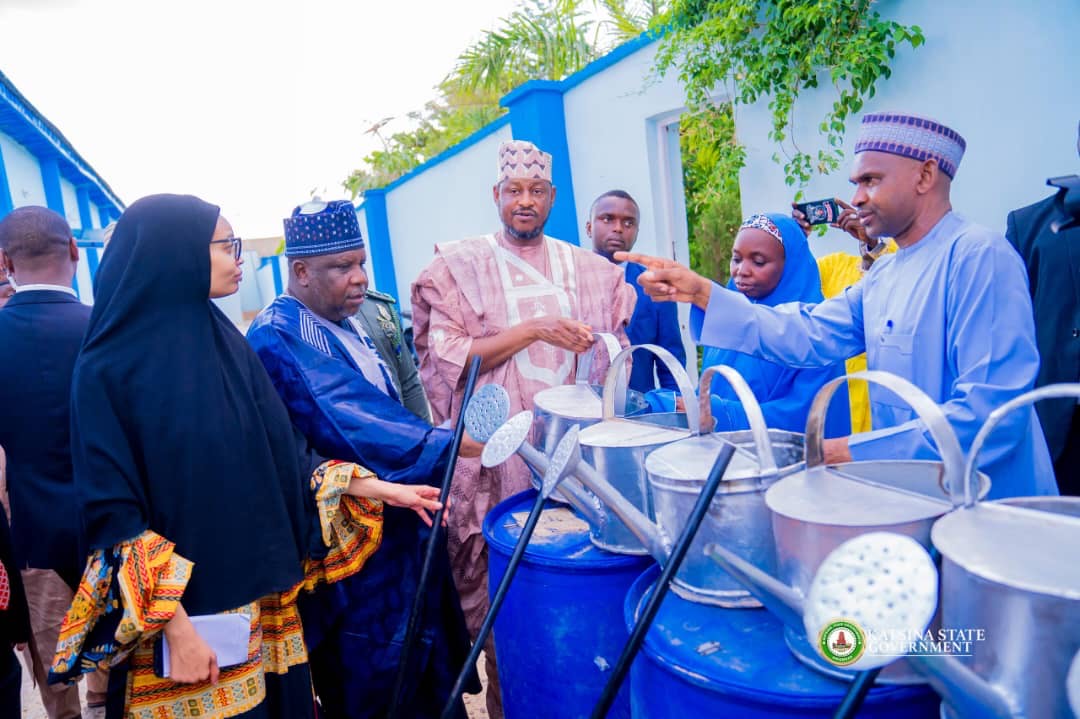US-Africa Business Summit Prepares Nigeria, others Ahead $2.1 Trillion Consumer Spending Boom - THISDAYLIVE
Raheem Akingbolu
The Chairman of the Economic Council on Africa (CCA), John Olajide, has said the just-concluded US-Africa Business Summit, held in Luanda, Angola provided a credible opportunity for Nigeria and the rest of Africa, to map out strategies and dialogue on harnessing opportunities in the African continent, ahead a consumer spending, expected to surpass 2.1 trillion dollars by the end of 2025.
Olajide, who spoke at the opening ceremony of the event, aimed at discussing the economic future of Africa, said huge opportunities across the continent remained untapped, due to bureaucratic impediments, infrastructural deficits and rigid policies, being faced by business owners.
The CCA Chairman said the summit was a platform to address the knotty issues and turn Africa to the most economically attractive continent in the world. In particular, he called the attention of over 2,000 participants at the summit to the fact that Africa’s GDP has been growing at the rate that surpasses the global average. He also reminded African leaders and business owners, present at the event, of the fact that the continent had been identified as a home to six of the top 10 economies in the world with massive business opportunities that would create value and lift both Africa and global economies.
“If we are all willing with intent, we can unlock all the opportunities in the continent because we have the favourable figures and data to impact the world and make our continent great. Today, Africa has a rapidly growing middle class with consumer spending that is expected to surpass 2.1 trillion dollars by the end of 2025. Besides, with the launch of the Africa Continental Free Trade Agreement (AfCFTA), we now have the largest free trade market with 1.3 billion people and a combined GDP of 3.4 trillion dollars. These are incredible figures that we must all determine to explore to grow Africa economies,” he stated.
At another forum during the summit -The High-Level Dialogue on “The Race to Connect”, a conversation on building a resilient digital infrastructure across the continent, Olajide urged African leaders to invest in infrastructures that will help the continent access the opportunities in the global tech revolution. He also called for regional integration and urged the African leaders to review and harmonize the visa regime across the continent. To support his view, the CCA Chairman referenced the challenges faced by some participants before they could connect Angola, whereas participants from the US entered the country without any hindrance.
Meanwhile, the United States Department of State has said that the summit yielded more than 2.5 billion dollars in new deals and commitments between the U.S. and African partners.
The U.S. Department of State said the summit, which was held from June 22 to 25, attracted more than 2,700 U.S. and African public and private sector leaders.
The Department said the summit was hosted by the Corporate Council on Africa and the President of Angola, noting this year’s summit marked a record turnout, including 12 African Heads of State.
“During the summit, more than 2.5 billion dollars in new deals and commitments between U.S. and African partners were announced,” it said in a post on its website.
The department added that the deals and commitments reinforced “the United States’ prioritisation of tradeIt added that the deals and commitments over aid in our approach to Africa – engaging Africans as peers and partners in investment-led growth.”
But against the backdrop of tariffs and travel bans by the United States, African leaders at the summit called for an urgent review of the U.S. tariffs on African exports, urging a shift towards transformative partnerships and investment in Africa’s economic potentials.
Angolan President João Lourenço said: “It is time to replace the logic of aid with the logic of investment and trade.”
He urged U.S. companies to diversify beyond traditional oil and mineral extraction and invest in sectors such as automotive manufacturing, shipbuilding, tourism, cement production, and steel production.
African Union Commission Chairperson Mahmoud Ali Youssouf added, “We’re not seeking aid, but building co-created solutions.” He called for the removal of punitive tariffs and visa restrictions, noting that Africa’s 1.3 billion people and abundant resources remain among the world’s most significant untapped economic opportunities.
“This should not just be a summit, but a call to action. Together, let’s walk the pathways to prosperity—with unity, purpose, and Agenda 2063 as our guide,” he told the summit.
In his remarks, African Development Bank Group President Dr. Akinwumi Adesina said, “We should review the high tariffs on African countries. What is needed is more trade between Africa and the U.S., not less.”
Adesina pointed to the Lobito corridor as a concrete example of strategic investment already underway.
He also disclosed that the African Development Fund, the soft loan arm of the Bank Group, would be providing $500 million in support of the development of the Lobito Corridor. Additionally, the African Development Bank will provide $1 billion over five years for complementary investments around the corridor, including agricultural value chains, roads, and energy infrastructure.
African Continental Free Trade Area (AfCFTA) Secretary General Wamkele Mene reinforced Africa’s integration agenda, highlighting the importance of open regional markets. “The undertaking of the AfCFTA is an ambitious one—It has to be ambitious,” Mene said. He emphasized that the success of AfCFTA is essential to scale investment, reduce fragmentation, and accelerate industrial development across the continent.









